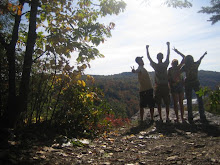In the Prologue, the author and narrator, Ji-li Jiang, discusses what a proud, trusting child she was before the Cultural Revolution began when she was in sixth grade. This pretty much signaled that the Revolution may have destroyed her confidence and trust in her country.
The novel begins in Ji-li Jiang's school during her music class. A woman from the liberation army visits and all of the children are fascinated by the woman and her long braids. The woman picks several children out of the classroom to audition for the Central Liberation Army Arts Academy. Ji-li Jiang returns home to explain the exciting news to her family who are far from excited. Because of their family's political past, Ji-li's father will not let her audition. I felt bad for Ji-li at first, but clearly her father was very correct on his reasoning. If their family's past political ideas were considered "corrupt" by the current government, Ji-li would have surely not been admitted into the academy, I'm kind of curious as to if anything else would have happened to their family though? At the end of the chapter, Ji-li still sees no reason as to why she can't audition, which seems typical for any child her age because she feels left out.
The next chapter gets a little bit deeper into how ridiculous some of Mao Zedong's ideas were. While at their favorite Sunday hangout, Grandpa Hong's bookstall, Ji-li and her sibling's afternoon of reading picture books is interrupted by a campaign to "Destroy the Four Olds." The fourolds included old ideas, culture, customs, and habits. The children watched as the Great Prosperity Market's sign was destroyed, and even took part excitedly in stomping on the sign with the large crowd. I was surprised at how eager everyone seemed to be to destroy the sign. The Great Prosperity market sounded like a pretty harmless name to me, but was destroyed because of the word "prosperity." It all seemed kind of eerily extremist, but was really interesting to read about how strongly people felt about Mao's ideas. Because she is so young, Ji-li Jiang completely buys into all of the new ideas of "Chairman Mao," and it becomes clearer and clearer that her parents are not supporters, although they subtly try to hide it from her.
So far, the novel has proven as a very good tool to understand Communist China as a citizen of China did at that time. It's been very interesting to see a child's view on it all, and I'm honestly looking forward to further exploring how the plot develops along with the idea's of the characters.
Subscribe to:
Post Comments (Atom)

1 comment:
I guess the prologue is just trying to show you how much damage the Cultural revolution did to this poor girl. How anyone could come back out of this not affected might be impossible.
As you point out, some people did not play the political wink & hand shake game, like Ji-li's father, but these people became 'unpopular' with party officials. It is a society based on peer pressure.
Ji-Li wants to belong, like most people tend to feel when with a group. Her father knows better, he knows the party and how they will brainwash his child. That is why he objects?
Mao's ideas right or wrong will change China forever. The campaign to "Destroy the Four Olds." will wreck so much of their old temples, artifacts, and other stuff that can never be replaced. It is a very sad part of China's history. They thought they were re-inventing their culture during this phase, but by trashing their "olds" what they were doing was destroying China's future/past.
You wrote: "I was surprised at how eager everyone seemed to be to destroy the sign."
The power to conform, or belong to a group, will make even the smartest people do such stupid and crazy things. As you point out, Ji-Li is happy to believe anything she is told.
I'm glad the novel helped explain the whole communist system for you. The novel was recommended to me by Mr. Dandoy, who used to teach English 11 before Mrs. Bell did.
Mr. Farrell
Post a Comment